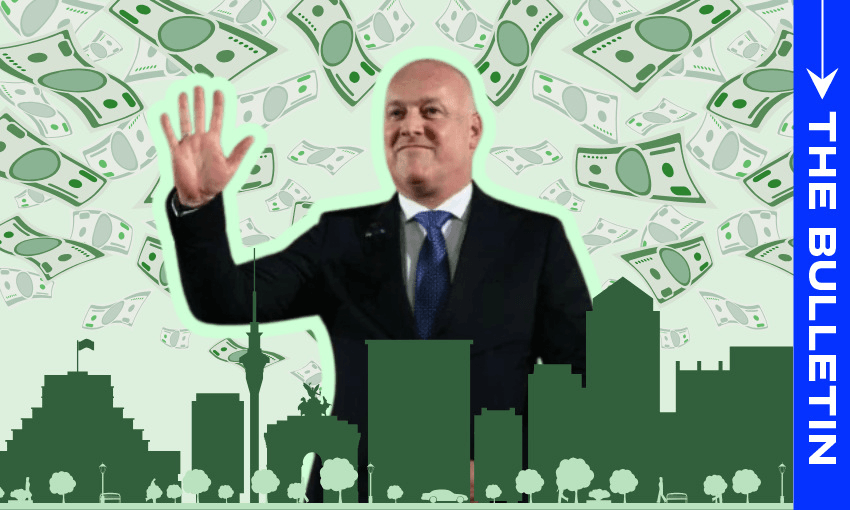Luxon’s comments about the OCR have stirred debate over political influence, just as the Reserve Bank begins weighing whether to relax rules that the government opposes, writes Catherine McGregor in today’s extract from The Bulletin.
To receive The Bulletin in full each weekday, sign up here.
PM walks a fine line on Reserve Bank
Christopher Luxon has been forced to clarify his relationship with the Reserve Bank after admitting he shares his “reckons” with acting governor Christian Hawkesby before official cash rate decisions. After telling Mike Hosking yesterday morning that he’s open with the governor about the need for more monetary stimulus, Luxon was asked in a standup to defend his comments. He said he and Hawkesby “air our views” but emphasised that the central bank’s ”independence is sacrosanct”, the Herald’s Thomas Coughlan reports.
Labour’s finance spokeswoman Barbara Edmonds said it was inappropriate for a prime minister to air such views directly to the governor, warning Luxon was “walking a very fine line” between commentary and direction. The debate comes as households await further cuts – two more are expected this year – with Luxon acknowledging frustration at the pace of easing.
Central bank bows to pressure on capital rules
At the same time, the Reserve Bank has begun a consultation on lowering the amount of capital banks must hold, a move widely seen as bowing to pressure from the government following Adrian Orr’s resignation. The consultation offers two options for easing requirements and scraps the strict “one-in-200-year shock” test, a benchmark not used overseas. Experts say the changes, if adopted, would put slight downward pressure on lending rates and reduce costs for smaller banks, though the RBNZ’s Jess Rowe cautioned they would not “set the world on fire”. The consultation runs through the rest of the year, with a final decision expected in early 2026, reports Gyles Beckford of Interest.co.nz. Finance minister Nicola Willis has welcomed the review, arguing it will boost competition and efficiency in lending markets.
Why capital requirements matter
New Zealand’s capital rules were set in 2019, when the Reserve Bank raised minimum ratios from 10.5% to an expected 18% by 2028, far stricter than comparable countries. The rationale was to guard against a potential trans-Tasman crisis in which Australian banks might abandon their New Zealand subsidiaries. That approach, driven by Orr, sparked years of debate. In The Post (paywalled), Luke Malpass summarises the two sides: “For its opponents this has undermined competitiveness, profitability, and loaded cost into the economy. For its proponents, it was proportionate and prudent.” The deeper question, Malpass writes, is how much uncertainty New Zealanders are willing to accept when it comes to the safety of their cash: “It’s a trade off – the Government’s moves here are pro-competition and should be to the benefit of consumers. But they do involve some increase of risk.”
A house divided on property prices
Luxon’s media round also reopened the debate on the direction of house prices. He told Hosking the government wanted “modest, consistent house price increases” – a contrast to housing minister Chris Bishop, who has openly called for prices to fall in order to free up capital for more productive investment. As Bridie Witton writes for Stuff, Bishop has argued that the economy must “decouple” from house price growth, a stance that breaks with National orthodoxy and recalls the political firestorm that engulfed then Green Party co-leader Metiria Turei when she proposed a similar idea nearly a decade ago.
John Key, by contrast, took a maximalist position when speaking to business leaders last month. Along with calling for a whopping 100-point OCR cut to stimulate growth, the former prime minister said falling house prices are at the “core of what’s wrong” with the current economy. Yesterday Luxon appeared to walk a line between his colleagues, agreeing with Bishop that “you don’t just want to drive an economy through immigration and house price inflation,” while still signalling he was comfortable with gains in property values – as long as they’re sustainable.
Subscribe to NameEmail+Subscribe

